MercoPress. South Atlantic News Agency
Tag: tsunami
-
Sunday, March 27th 2011 - 05:04 UTC
Radioactivity levels 1.250 times higher than normal in sea water at Fukushima

Radioactivity levels are soaring in seawater near the crippled Fukushima Daiichi plant, Japan's nuclear safety agency said, two weeks after the nuclear power plant was hit by a massive earthquake and tsunami.
-
Thursday, March 24th 2011 - 03:42 UTC
Japan estimates cost of the earthquake and tsunami could reach 300 billion USD
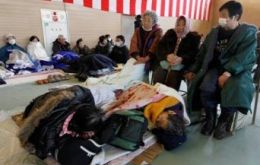
Japan estimated the cost of the damage from its devastating earthquake and tsunami could top 300 billion US dollars (close to 6% of GDP). The first official estimate since the March 11 disaster covers damage to roads, homes, factories and infrastructure.
-
Tuesday, March 22nd 2011 - 23:34 UTC
Tepco will have to compensate farmers around Fukushima area, says Japan
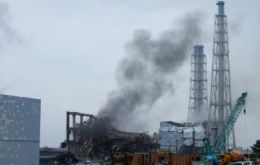
Tokyo Electric Power (Tepco) will have to compensate farmers for losses caused by the nuclear radiation leaking from its power plants, Japan has said.
-
Tuesday, March 22nd 2011 - 08:15 UTC
World Bank forecasts Japanese economy will begin recovering at the end of 2011
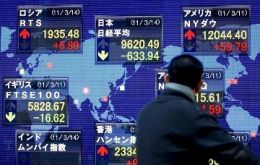
Japan's devastating earthquake and tsunami will depress growth briefly before reconstruction kicks off and gives the beleaguered economy a boost, the World Bank said in a report.
-
Monday, March 21st 2011 - 19:40 UTC
IATA warns of setback in the air travel industry while Japan recovers

The International Air Transport Association (IATA) has warned that fuel prices could increase and the global aviation industry will face a setback while Japan recovers from the earthquake.
-
Monday, March 21st 2011 - 06:51 UTC
IAEA says Japan’s nuclear emergency remains very serious; death and missing toll reaches 21.000
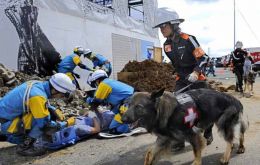
The United Nations nuclear agency, IAEA, says there have been positive developments in Japan's efforts to tackle a nuclear emergency after the 11 February quake.
-
Friday, March 18th 2011 - 03:29 UTC
If power is restored and if pumps work Fukushima reactor could be cooled
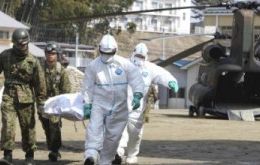
Engineers at Japan's stricken Fukushima nuclear power plant have managed to lay a cable to reactor 2, the UN's nuclear watchdog reports. Restoring power should enable engineers to restart the pumps which send coolant over the reactor.
-
Thursday, March 17th 2011 - 07:44 UTC
Japanese tsunami surprises Midway atoll killing thousands of albatrosses
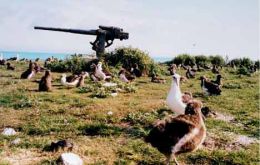
Thousands of albatrosses and other endangered species at a wildlife sanctuary north-west of Hawaii have been killed by the tsunami which devastated Japan, US officials say.
-
Wednesday, March 16th 2011 - 23:25 UTC
Wikileads cables reveal Japan was warned about poor safety at nuclear plants
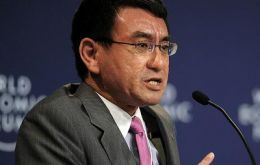
As concerns about a meltdown at the Fukushima plant escalate, Britain’s the Telegraph revealed a series of two-year-old cables the paper obtained from Wikileaks that show unnamed experts telling Japanese officials they needed to update their nuclear safety protocols.
-
Wednesday, March 16th 2011 - 15:05 UTC
WHO: radiation risk in Japan limited to area next to damaged nuclear plant
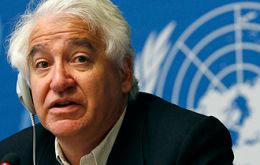
The risk of the contamination of food products from nuclear radiation in Japan is limited to the specific area surrounding the damaged nuclear plant, according to a source from the World Health Organization (WHO).
